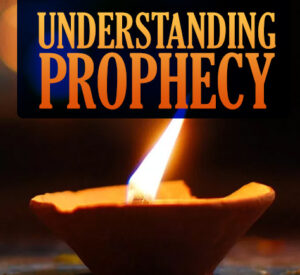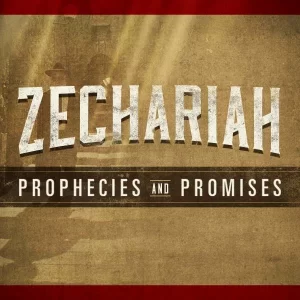Interpretations of the Rabbis – Messiah Prophecies
Hebrew texts serve as the basis for the Tenakh and the Old Testament Scriptures, but when it comes to Messiah prophecies, translations and their meanings vary. Christianity and Judaism disagree on some Messiah prophecies, especially those deemed to be fulfilled by the life of Jesus of Nazareth.

Judaism’s interpretations are based primarily on the views of the Rabbi sages who are not always in agreement among themselves on which prophecies point to the Messiah. Differences within Christianity are no exception on such topics as baptism, worship, confessions – even salvation.
Some Rabbi sages became known for their prophecy interpretations documented in commentaries, letters (Responsa) or published works. Other views of Rabbis are expressed in contributions to Gemaras in the Talmud.
Rabbi Rashi is one such renowned Jewish sage esteemed for his Scriptural commentaries. So much so, a mainstream Jewish Bible is named the Complete Jewish Bible with Rashi Commentary.[1]
Genesis 49:9-10 is recognized by Rashi as a Messiah prophecy making it one of the oldest. Jacob‘s blessing established the foundation for the future Messiah foretelling his descendants would become a “like a lion” and the “sceptre” would not depart until Shiloh comes.[2]
Gen. 49:8-10 “Judah, your brothers shall praise you; Your hand shall be on the neck of your enemies; Your father’s sons shall bow down to you. “Judah is a lion’s whelp; From the prey, my son, you have gone up. He couches, he lies down as a lion, And as a lion, who dares rouse him up? The sceptre will not depart from Judah, nor the ruler’s staff from between his feet, until he comes to whom it belongs and the obedience of the nations is his.” (NASB)
Rashi espoused “Shiloh” as the “King Messiah, to whom the kingdom belongs.” Hebrew word shebet is translated as “scepter” or “staff” and, according to Rashi, refers to the future royal lineage of “David and thereafter.”[3] Appearing again in Balaam’s prophecy, Rashi interpreted the word to mean “a king who rules dominantly” from the future lineage of David.[4]
Num 24:17 “I see him, but not now; I behold him, but not near; A star shall come forth from Jacob, A scepter shall rise from Israel, And shall crush through the forehead of Moab, And tear down all the sons of Sheth.” (NASB)
Another prominent Jewish sage is Rabbi Maimonides, known as Rambam, who authored the Mishneh Torah.[5] His work is revered for formulating the Law into the 13 principals of Jewish faith and for codifying the halakhah or Jewish Law.[6]
Maimonides believed Balaam’s prophecy referred to “King Moshiach” (Messiah) who would come from the lineage of David.[7] Rashi viewed Balaam’s prophecy as referring to King David who “shoots out like an arrow” from Jacob and uproots the sons of Sheth or Seth (the son of Adam).[8]
Micah 5:2 seemingly unambiguously predicts the place of origin for the future ruler of Israel, yet the prophecy is challenged by some Jewish authorities.[9] Rashi interpreted the verse to be foretelling the Messiah would come from Bethlehem in the lineage Jesse and King David, then quoted Psalms 118:22, “The stone the builders had rejected became a cornerstone.”[10]
Some of the Rabbis in Talmud Gemara Sukkah 52a believed the Zechariah 12:10 prophecy refers to the death of the Messiah; other Rabbis disagreed saying it had nothing to do with the Messiah. Rabbi Maimonides was silent in the prophecy while Rashi offered a third interpretation saying the prophecy is a metaphor about Israel.[11]
Psalms 22 is a passage recognized by Christianity as a Messiah prophecy describing in detail the circumstances of a death consistent with a Roman crucifixion a millennia later. Judaism focuses solely on the question in the chapter’s second verse, “Why have you forsaken me?” as the basis for the Psalm being about the nation of Israel.[12]
My Servant” in the Isaiah 52:13 – 53:12 parashah or passage is viewed by Christianity as predicting the suffering, death and Resurrection of the Messiah fulfilled by the life of Jesus of Nazareth. Judaism generally treats “My Servant” as a metaphor of a single man representing the nation of Israel; however, some Rabbi sages pose other interpretations.[13]
Rabbi sages, going back to the days of the Talmud, pointed to 5 different Messiah prophecies within the Isaiah 52-53 parashah: verses 52:13, 15; 53:2, 5, 7. Talmud tractate Sanhedrin 98b quotes Isaiah 53:3 as the basis for one of the names of the Messiah.[14]
Misheh Torah made Maimonides famous and generated fan mail. His response letters to his fans, known as Responsa (or Teshuvot), have become additional important texts of Maimonides’ Scriptural interpretations.[15] In one Responsa, Maimonides referenced Isaiah 52:15 and 53:2 predicting the Messiah would be identified by his origins and his wonders.[16]
Rabbi Moshe Kohen ibn Crispin was from Spain and a renowned twelfth century Rabbi and poet. He is acclaimed in Judaism for his Jewish work entitled Sefer ha-Musar, the “Book of Instruction.”[17]
Crispin espoused that “My Servant” in Isaiah 52:13 of the Isaiah 52-53 parashah refers to “King Messiah” acknowledging his interpretation is in conflict with the prevailing Jewish position. Still not believing that Jesus of Nazareth is the Messiah, his book gave surprisingly bold, verse by verse commentaries defining expectations for the Messiah.[18]
Rabbi Jose the Galilean was a distinguished Rabbi leader and recognized authority on sacrifices and the Temple. He is reputed for both for his quoted contributions in the Talmud Gemaras as well as for his independent commentaries.
Independently, the Rabbi wrote the Messiah would be wounded for our transgressions quoting from Isaiah 53.7.[19] “The name of the Messiah is also ‘peace;'” saying, “…and as it is written [Is. ix. 5]: “The prince of peace.”
Frequently seen during the Christmas season in western cultures is Isaiah 9:6, is deemed to be a Messiah prophecy in Christianity. It foretells of a son who would bear the full responsibility for the government and would be known by many names.
IS 9:6 “For unto us a Child is born, Unto us a Son is given; And the government will be upon His shoulder. And His name will be called Wonderful, Counselor, Mighty God, Everlasting Father, Prince of Peace.” (NKJV)
Judaism generally disagrees saying the verse it is not a Messiah prophecy. Rashi’s commentary specifically refuted Christian interpretations, instead saying it is about the authority and peace of King Hezekiah and King David.
Reading the fuller context of a given potential prophecy can be helpful. Which of these are prophecies that point to the Messiah and set requirements and expectations for the Messiah?
Updated January 13, 2025.
This work is licensed under a Creative Commons Attribution-NonCommercial-NoDerivatives 4.0 International License.
REFERENCES:
[1] The Complete Jewish Bible – with Rashi Commentary. <http://www.chabad.org/library/bible_cdo/aid/63255/jewish/The-Bible-with-Rashi.htm> Dev, Naaleh. Naaleh Torah Online. image. n.d. https://www.naaleh.com/wp-content/uploads/2018/01/understanding-prophecy.jpg>
[2] The Compete Jewish Bible – with Rashi Commentary. Genesis 49:9-10 Rashi commentary. Babylonian Talmud Sanhedrin 98a. CR Gensis 17:6, NASB.
[3] Rashi. The Complete Jewish Bible with Rashi Commentary. Genesis 49:10.
[4] Rashi. The Complete Jewish Bible with Rashi Commentary Numbers 24:17. Maimonides. “The Law Concerning Moshiach.” NetBible.org. Hebrew text shebet <07626> <http://classic.net.bible.org/strong.php?id=07626>
[5] Maimonides. Mishneh Torah. Trans. Eliyahu Touger. <http://www.chabad.org/library/article_cdo/aid/682956/jewish/Mishneh-Torah.htm> Maimonides, Moses. The Thirteen Principles of Jewish Faith. n.d. <https://www.chabad.org/library/article_cdo/aid/332555/jewish/Maimonides-13-Principles-of-Faith.htm>
[6] Rich, Tracey R. “Jewish Beliefs.” JewFAQ.org. n.d. <http://www.jewfaq.org/beliefs.htm>
[7] Maimonides. “The Law Concerning Moshiach.”
[8] Rashi. The Complete Jewish Bible with Rashi Commentary Numbers 24:17.
[9] “Micah, Book of.” Jewish Encyclopedia. 2011. “Contents and Unity.” <http://www.jewishencyclopedia.com/articles/10777-micah-book-of>
[10] The Complete Jewish Bible with Rashi’s Commentary. Micah 5:1
[11] The Complete Jewish Bible – with Rashi Commentary. Zechariah 6:12. Sukkah 52a. Halakhah.com. Trans. Soncino Babylonian Talmud. n.d. pp 74-77, footnote #1-3. <http://www.halakhah.com/rst/moed/16b%20-%20Succah%20-%2029b-56b.pdf>
[12] The Complete Jewish Bible with Rashi’s Commentary. Psalms 22.
[13] The Complete Jewish Bible with Rashi Commentary. Isaiah 53:3-4. Neubauer, Driver & Rolles. The Fifty-third Chapter of Isaiah According to the Jewish Interpreters. p 37. Gold, Moshe. “Israel’s Messenger, The Suffering Servant of Isaiah – A Rabbinic Anthology.” Israel’s Messenger. 2009. Jewish Awareness Ministries. <http://www.jewishawareness.org/the-suffering-servant-of-isaiah-a-rabbinic-antholo>
[14] Isaiah 53:3. Soncino Babylonian Talmud. Ed. Isidore Epstein. Sanhedrin 98b, footnote #31. <https://israelect.com/Come-and-Hear/talmud/index.html> CR Neubauer, Driver & Rolles. The Fifty-third Chapter of Isaiah According to the Jewish Interpreters. pp 12-16.
[15]Neubauer, Driver & Rolles The Fifty-third Chapter of Isaiah According to the Jewish Interpreters. pp XVI, 37, 374-375. <https://books.google.com/books?id=YxdbAAAAQAAJ&pg=PP1#v=snippet&q=Galilean&f=false>
[16] Maimonides. “Letter to the South (Yemen).” Neubauer and Driver. The Fifty-third Chapter of Isaiah According to the Jewish Interpreters.> p 374.
[17] Crispin, Moshe Kohen ibn. “Sefer ha-Musar.” Neubauer, Driver & Rolles. The Fifty-third Chapter of Isaiah According to the Jewish Interpreters. pp 99-101. Marlowe, Michael. Editions of the Hebrew Text of the Bible. Bible Research. “The Incunabula.” 2012. <http://www.bible-researcher.com/hebrew-editions.html> Rosenau, William. Jewish Biblical Commentators. pp 87-91 n.d. <http://www.archive.org/stream/jewishbiblicalco00rose/jewishbiblicalco00rose_djvu.txt> The fifty-third chapter of Isaiah According to the Jewish Interpreters. pp 99-100. <https://books.google.com/books?id=YxdbAAAAQAAJ&pg=PP1#v=onepage&q&f=false>
[18] Crispin, Moshe Kohen ibn. “Sefer ha-Musar.” Neubauer, Driver & Rolles. The Fifty-third Chapter of Isaiah According to the Jewish Interpreters. pp 99-101.
[19] Jose the Galilaean. Neubauer, Driver & Rolles. The Fifty-third Chapter of Isaiah According to the Jewish Interpreters. pp 10-11, R


